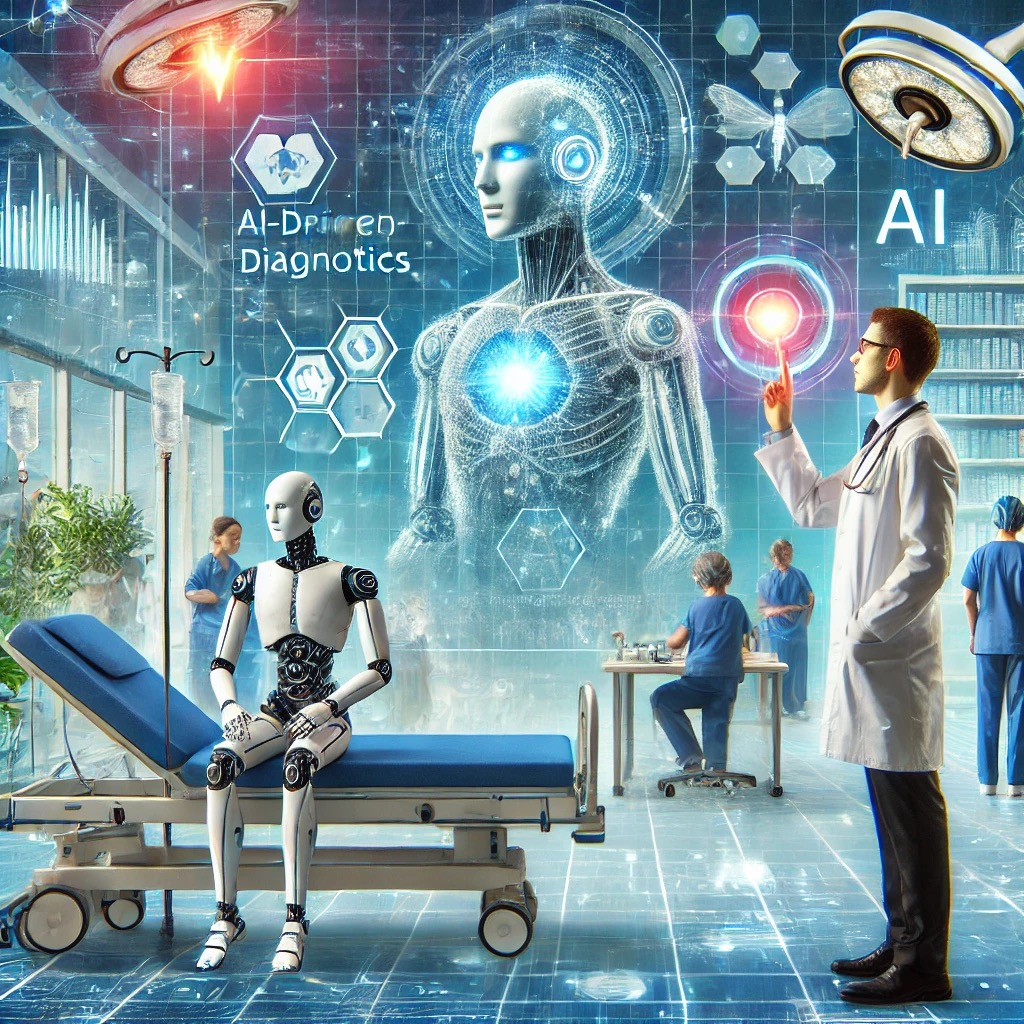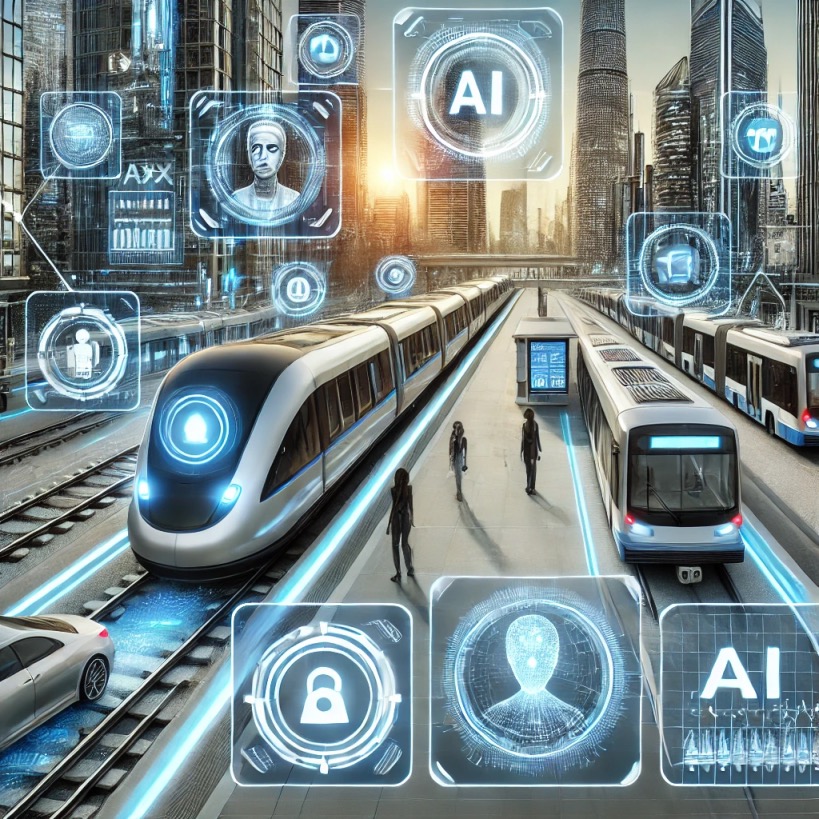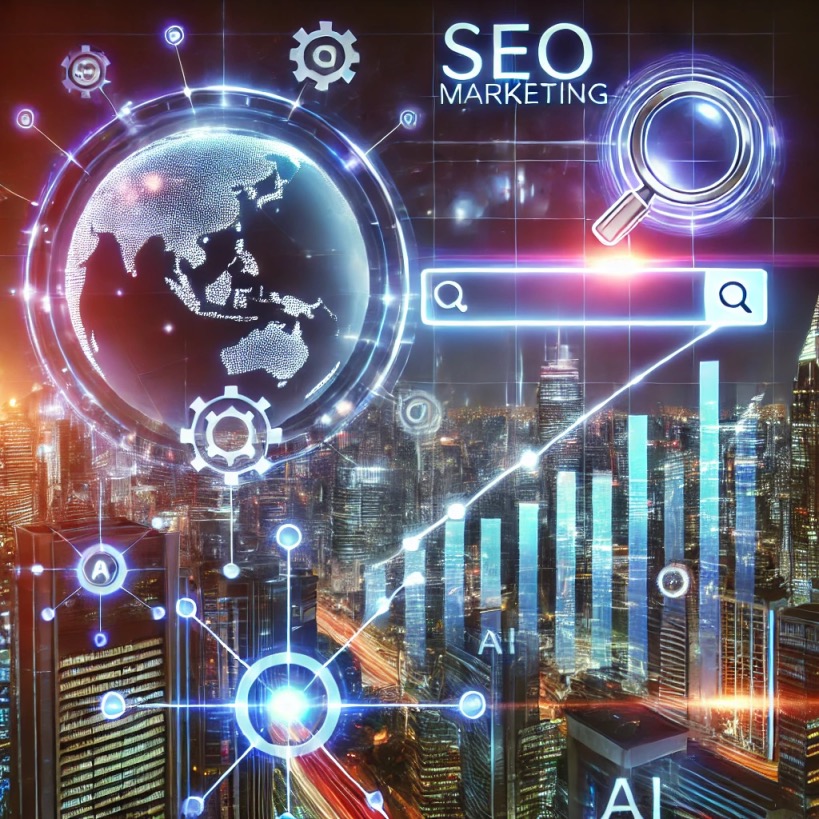Artificial Intelligence (AI) is revolutionizing healthcare by enhancing diagnostics, personalizing treatments, streamlining operations, and accelerating drug discovery. While its potential is immense, challenges such as ethical concerns, data privacy, and regulatory hurdles must be addressed to fully integrate AI into healthcare systems.

1. Diagnostics and Medical Imaging
- Applications:
- Radiology: AI algorithms (e.g., Google’s DeepMind, Zebra Medical Vision) analyze X-rays, MRIs, and CT scans to detect tumors, fractures, and neurological disorders with accuracy rivaling or surpassing human experts.
- Pathology: Platforms like PathAI assist in identifying cancer cells in biopsy samples, improving diagnostic consistency.
- Benefits: Faster diagnosis, reduced human error, and early detection of diseases like breast cancer.
- Challenges: Requires vast, diverse datasets; liability issues in misdiagnosis.
2. Personalized Medicine
- Applications:
- Genomics: AI analyzes genetic data to recommend targeted therapies (e.g., IBM Watson for Oncology tailoring cancer treatments).
- Predictive Analytics: Tools like Tempus predict patient responses to specific drugs based on historical data.
- Benefits: Improved treatment efficacy and reduced side effects.
- Challenges: Data privacy risks and accessibility disparities.
3. Administrative Efficiency
- Applications:
- Automation: AI streamlines scheduling, billing, and claims processing (e.g., Olive AI).
- Voice-to-Text: Nuance’s Dragon Medical One transcribes clinician notes, reducing paperwork.
- Benefits: Cost savings and more time for patient care.
- Challenges: Job displacement fears; integration with legacy systems.
4. Drug Discovery and Development
- Applications:
- Compound Screening: Insilico Medicine uses AI to identify potential drug candidates in months instead of years.
- Clinical Trials: AI matches patients to trials (e.g., Antidote Health) and predicts outcomes.
- Benefits: Accelerated timelines (e.g., Moderna’s COVID-19 vaccine development).
- Challenges: High costs and need for rigorous validation.
5. Remote Monitoring and Telemedicine
- Applications:
- Wearables: Devices like Apple Watch detect irregular heart rhythms (AFib) via AI.
- Telehealth Platforms: Babylon Health uses AI for symptom checking and triage.
- Benefits: Continuous care for chronic conditions and rural populations.
- Challenges: Digital divide and data security risks.
6. Mental Health Support
- Applications:
- Chatbots: Woebot and Wysa offer cognitive behavioral therapy (CBT) techniques.
- Sentiment Analysis: AI monitors social media for mental health crises.
- Benefits: 24/7 accessibility and stigma reduction.
- Challenges: Limited empathy and risk of misinterpreting nuances.
7. Ethical and Regulatory Considerations
- Bias Mitigation: Ensuring diverse training data to avoid disparities (e.g., skin cancer algorithms performing poorly on darker skin tones).
- Regulation: FDA’s AI/ML Software as a Medical Device (SaMD) framework guides approvals, but global standards lag.
- Informed Consent: Transparency in data usage and patient autonomy.

8. Future Trends
- Predictive Outbreak Modeling: AI analyzes global data to forecast epidemics (e.g., BlueDot’s early COVID-19 alert).
- Surgical Robotics: Systems like Intuitive Surgical’s da Vinci enhance precision in operations.
- AI in Medical Education: Training programs incorporate AI tools for diagnostics and decision-making.
Conclusion
AI is a transformative force in healthcare, offering unprecedented opportunities to improve outcomes and efficiency. However, success hinges on balancing innovation with ethical rigor, equitable access, and human oversight. Collaboration between technologists, clinicians, and policymakers will ensure AI serves as a complementary tool, empowering—not replacing—the human touch in medicine. The future of healthcare lies in this synergy, where technology amplifies compassion and expertise.



